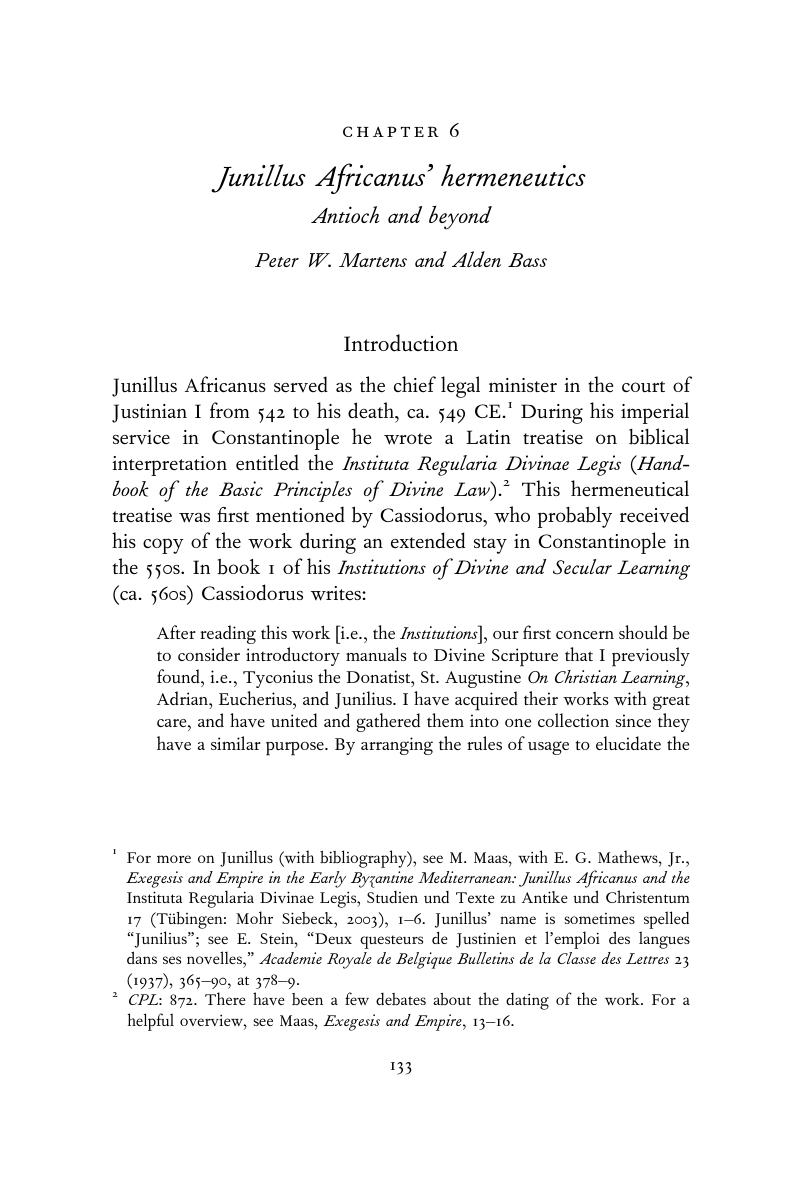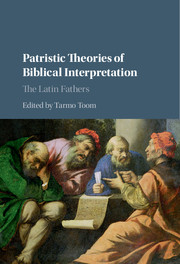Book contents
- Patristic Theories of Biblical Interpretation
- Patristic Theories of Biblical Interpretation
- Copyright page
- Contents
- Tables
- Contributors
- Book part
- Glossary
- Chapter 1 Introduction
- Chapter 2 Tyconius’ hermeneutics
- Chapter 3 Jerome’s hermeneutics
- Chapter 4 Augustine’s hermeneutics
- Chapter 5 Cassian’s hermeneutics
- Chapter 6 Junillus Africanus’ hermeneutics
- Chapter 7 Cassiodorus’ hermeneutics
- Chapter 8 Gregory’s hermeneutics
- Chapter 9 Isidore’s hermeneutics
- Bibliography
- Index
- References
Chapter 6 - Junillus Africanus’ hermeneutics
Antioch and beyond
Published online by Cambridge University Press: 05 June 2016
- Patristic Theories of Biblical Interpretation
- Patristic Theories of Biblical Interpretation
- Copyright page
- Contents
- Tables
- Contributors
- Book part
- Glossary
- Chapter 1 Introduction
- Chapter 2 Tyconius’ hermeneutics
- Chapter 3 Jerome’s hermeneutics
- Chapter 4 Augustine’s hermeneutics
- Chapter 5 Cassian’s hermeneutics
- Chapter 6 Junillus Africanus’ hermeneutics
- Chapter 7 Cassiodorus’ hermeneutics
- Chapter 8 Gregory’s hermeneutics
- Chapter 9 Isidore’s hermeneutics
- Bibliography
- Index
- References
Summary

- Type
- Chapter
- Information
- Patristic Theories of Biblical InterpretationThe Latin Fathers, pp. 133 - 159Publisher: Cambridge University PressPrint publication year: 2016
References
Further reading
- 1
- Cited by



